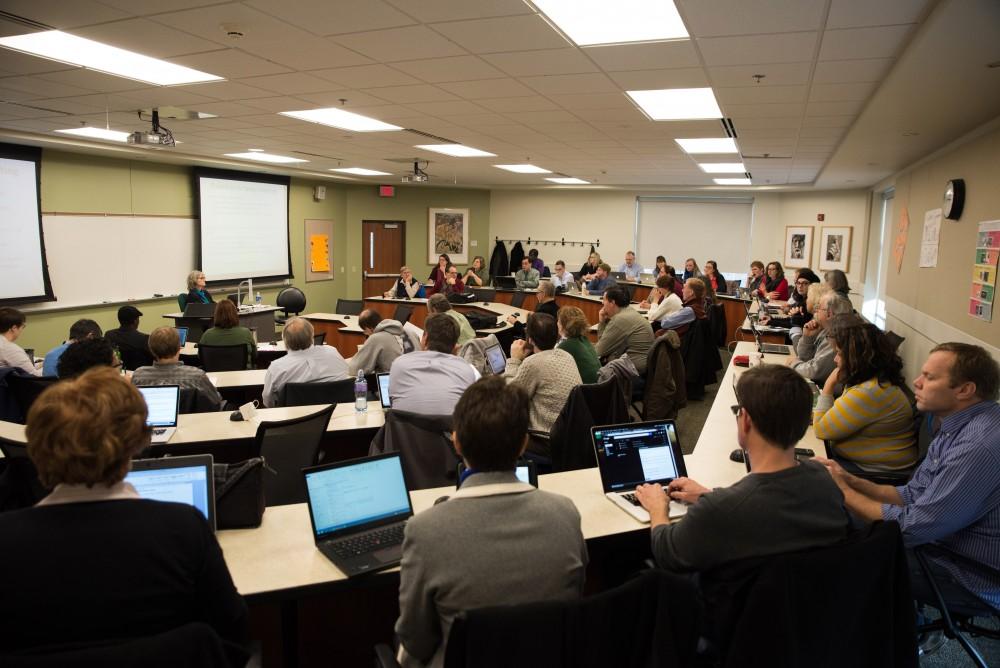UAS discusses student evaluation effectiveness

GVL/Luke Holmes
Nov 23, 2015
On Nov. 20, the University Academic Senate (UAS) held a meeting in the Frederik Meijer Honors College to discuss universal teaching forums at Grand Valley State University.
The UAS is the highest faculty governance body at the university. Its members have the authority to deal with any academic or faculty concern, such as curriculum, the budget, faculty personal policy and other issues relevant to academic or campus affairs.
Karen Gipson, chair of UAS and physics professor at GVSU, said the overall goal of the meeting was to consider recommendations by the Universal Student Evaluation of Teaching Implementation task force (USETI). The primary recommendation being presented by the task force related to how student evaluations play into the personnel process for reviews for faculty and staff members.
“We held a special meeting to dealing with this question,” Gipson said. “All the faculty are concerned that student comments (are) needed and should be heard.”
Recommendation 3-3: Use of Information from Reports, one of four recommendations that were evaluated at the meeting, focuses on the use of information from reports. It was indicated that a complete report is available to everyone under the following conditions: prejudicial comments may be redacted – the comments do not get directly eliminated, but phrased in different wordings for those faculty and staff reading the evaluations – and use of written comments should be corroborated with other evidence.
Edward Aboufadel, mathematics professor and USETI chair, helped write the recommendations. He noted that this recommendation will help faculty and staff members use the data from the evaluations to make personnel and merit decisions.
“The original recommendation wasn’t came [sic] from USETI after a few meetings and on my own I drafted the replacement,” he said. “The key things is that, rather than four top numerical scores, the complete report will be made available to course instructors and everyone else, with only course instructors saying ‘I want you to remove this’ in the personal process because this comment is biased, racist and sexist, or something along those lines.”
Decisions to remove those comments, Aboufadel indicated, would be a unit head decision, which could then be appealed to the dean. In that regard, the use of written student comments in evaluations should be informed by the idea that the state has limitation and evaluators are directed to giving appropriate weight to measures into teaching effectiveness.
Maddie Cleghorn, student senate president, acted as a student representative at UAS. With other members of the student senate cabinet, Cleghorn spoke of her overall support for the recommendation and said that the evaluation not only benefits faculty and staff, but gives students the chance to express their opinions in a formal and open manner.
“I do think there are a lot of values in student comments just in that it gives it a way broader context than just four questions that just sum up a number,” Cleghorn said. “I’m not an expert in this kind of thing, but it just seems that if students knew when they were filling out these evaluations that the only things being used that were really being counted were the first four questions, they would be really surprised that’s really all that counts.
“Second, I support the revision that gives faculty the out to have statements redacted, as I think it is important to have a system that lets faculty get rid of bias prior to having an impact on the rest of your career,” Cleghorn said. “I think that students have the opportunity to make sure that their experiences have been unbiased.”
For further information about UAS and USETI, visit www.gvsu.edu/useti.

























